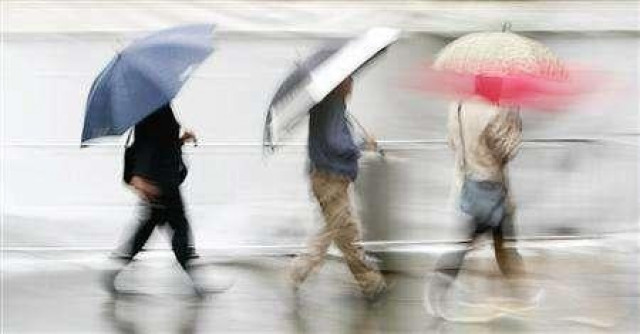Rainwater well to boost underground recharge in Lahore
Project has capacity of storing 1.37 million gallons

The Lahore Development Authority (LDA), in collaboration with its subsidiary Water and Sanitation Agency (WASA), has developed the first rainwater collection well in the metropolis to recharge the underground water table.
LDA Director General Ahmad Aziz Tarar and WASA Managing Director Syed Zahid Aziz on Tuesday visited the project site to inspect the pace and quality of development works. They were informed that around 70% of the work had been completed. The project has a storage capacity of 1.37 million gallons or 100mm of rainwater from surrounding areas, which earlier formed ponds on roads and in neighbourhoods. It was also highlighted that a well had become operational in the Lawrence Road area for testing during the current monsoon season. The project will incur a cost of Rs150 million.
A spokesperson for the authority indicated that earlier there were low-lying parks and grounds in different neighbourhoods of the city, which helped in underground water table recharge. However, these grounds had been occupied as a result of massive urbanisation. Earlier, the authority had proposed a similar project for Nishtar Park Sports Complex to resolve the problem of rainwater ponds and underground water recharge but it could not be initiated due to various reasons.
Speaking to The Express Tribune, a former WASA official underlined that excessive pumping of groundwater and rapid urbanisation had a darastic impact on the underground water table. Massive urbanisation in the provincial capital has breached the natural ecosystem. Construction and pavement have virtually blocked the groundwater recharge system in densely populated areas. He also pointed out that unpaved land, open spaces and parks are necessary to recharge natural water resources underground.
Punjab Irrigation Department estimates suggest that the groundwater level in the metropolis has dropped from 30-40 feet to 700-800 feet in most areas of the city during the past two decades. It has been dropping an alarming rate of around three feet every year.
Another study of the Worldwide Fund Pakistan points out that besides urbanization, excessive pumping of water is one of the main reasons of rapid depletion of groundwater in the provincial capital. It indicates that in the absence of any municipal water act or water-right law, groundwater is pumped indiscriminately by industries and private housing schemes.
It estimates that the water supply for domestic, industrial and commercial uses mainly comes from the groundwater. It is estimated to be 3.79 million cubic metres per day for domestic, 0.92mcm industrial and 0.77mcm per day for commercial use. WASA supplies water to most urban areas, while Lahore Cantonment Board, Walton Cantonment Board, Defence Housing Authority, Model Town Society, Pakistan Railway and a large number of private housing schemes are responsible for supplying water to their areas.
The study shows that private housing societies in the provincial capital pump 0.37 million cubic metres per day of water for supply to their residents. It highlights that in areas where the water supply network is not available, estimated extraction is 0.35mcm per day, which means the total groundwater extracted by private housing schemes is approximately 0.71mcm daily.
In addition, the Public Health Engineering Department (PHED) runs rural water supply schemes in Lahore district. Data shows that the total domestic water consumption in Lahore is 1,384mcm per annum.
Various estimates highlight that Pakistan has become one of the most water stressed countries in the world and is rapidly heading towards becoming water scarce. Per capita availability of water has dropped below 1,000 cubic metres as compared to 5,650 cubic metres in 1947. Around 1,600 cubic metres of water is available per capita in India, while major European countries have up to twice as much, ranging from 2,300 cubic metres in Germany to 3,000 in France.
Published in The Express Tribune, July 8th, 2020



















COMMENTS
Comments are moderated and generally will be posted if they are on-topic and not abusive.
For more information, please see our Comments FAQ